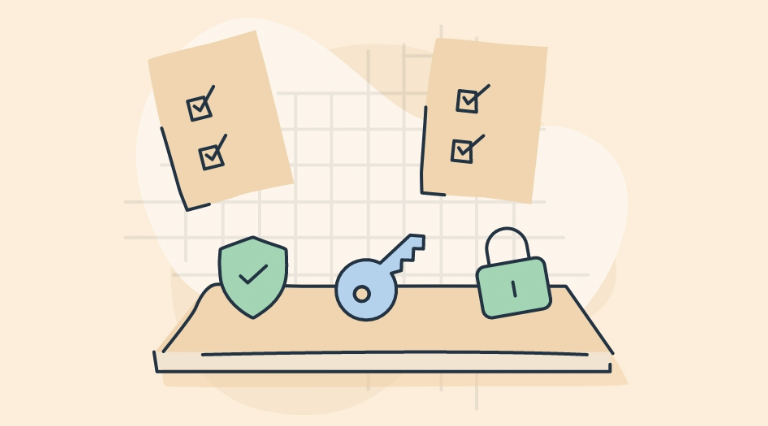Over the past few years, Data Privacy has become a key concern for companies worldwide. Mounting penalties for improper data usage doesn’t seem to spare top tech giants. This has been a massive motivator for companies to rethink their data privacy strategy. While we can consider this a more than valid reason for the recent uptick in data privacy, there are other reasons too. One of them being earning the customer’s trust and moulding it into a competitive advantage.
Meeting customers’ expectations and earning their trust is easier said than done. While collecting data there are several scenarios that a customer might find dubious and could lead to them leaving you high and dry. These could be a lack of transparency, a breach of data within your company or the overall uptight factor.
Customers around the world are already walking on eggshells around companies that collect their data and don’t state the purpose. The Facebook-Cambridge Analytica scandal that happened a few years back just added to this feeling of uneasiness when it comes to data collection. And it does not help that each data breach that happens is publicly scrutinized and picked apart. But for those with a keen eye, there is a silver lining to this somewhat murky situation. By following the best practices and differentiating yourself from existing players in the industry, your company can capitalize on this situation and turn it into a competitive advantage for itself. How do we do this?
Prioritizing Regulatory Certification
Based on the countries you do business in and your industry, there might be several regulatory bodies that govern data privacy. GDPR, HIPAA, CCPA and CDPA are a few of them. Compliance with the controls laid out by these regulatory bodies should be a high priority for any business dealing with customer data. Let’s take the example of GDPR, we mentioned hefty fines some of the tech giants had to pay. Do you think companies like Amazon or Google will choose not to be compliant by not paying the fine? This would mean that they have to forfeit doing business in the entire European market.
Being compliant with these regulatory certifications should not be treated as a checklist item in your data privacy to-do list. These certifications can open up new markets for your business. Added to that, these certifications can play a huge role in earning the customer’s trust when it comes to sharing data. In a 2018 survey by PWC, it was found that 88% of US consumers were willing to share data with a company they trusted. This is especially true in the current scenario where privacy occupies a higher echelon in customers’ minds as a factor for purchase decisions.
How to maintain HIPAA compliance with Mobile Device Management
Being Transparent
When it comes to collecting data from customers, it is ideal to set a purpose and furthermore be transparent about it. Back when Big Data was still in its infancy, the world wide web was more akin to The Wild West. With no real regulations governing it, customer data was a free-for-all and companies collected everything they could and stored it for as long as they wanted. This is not the case now. Due to various regulations and the customers being savvier about data collection, being upfront is the way to go.
Ultimately, businesses should introduce practices that collect data in a manner that benefits both, them and the customers. Being transparent about the purpose and the perceived benefit of the data being collected can motivate customers to share their data.
Protect the data-in-hand
A security breach and privacy breach are often misconstrued to be the one and same thing. While they both are similar, the cause and effect of these two breaches are vastly different. A security breach could be caused by a lapse in security or software vulnerabilities. A privacy breach mostly involves a lack of proper policies governing end-user data. A privacy breach can be as devastating as a security breach in monetary terms, along with that there would definitely be a drop in market cap and brand reputation. Add to that the litigation fees and the hefty fines that would be imposed by governing bodies like the European Commission (GDPR) or California Attorney General’s office (CCPA) .
It’s always prudent to have policies in place to protect end-user data and ensure total data privacy. It is also important to be transparent about these policies. Down the line, it could help in earning better customer loyalty, success and retention.
This resource kit will help your company adopt the right cybersecurity strategy to secure your business.

Featured resource
Cybersecurity kit
Bottomline
It is definitely a no-brainer that data and data privacy would be huge drivers for future growth opportunities. This being the case, it is a double-edged sword. A single misstep could cause huge monetary and market cap losses. So, is investing time and money in data privacy a good idea for organizations around the world? The answer is a resounding yes.
Beyond all the risk and uncertainty, a proper data privacy plan opens up avenues that nothing else can. With customers becoming more and more tech-savvy day after day, it’s a given that they would be looking into how their personal information is being used. So, if your organization already has a data privacy plan laid out, make sure to follow it thoroughly and if you haven’t, it is never too late to start.






